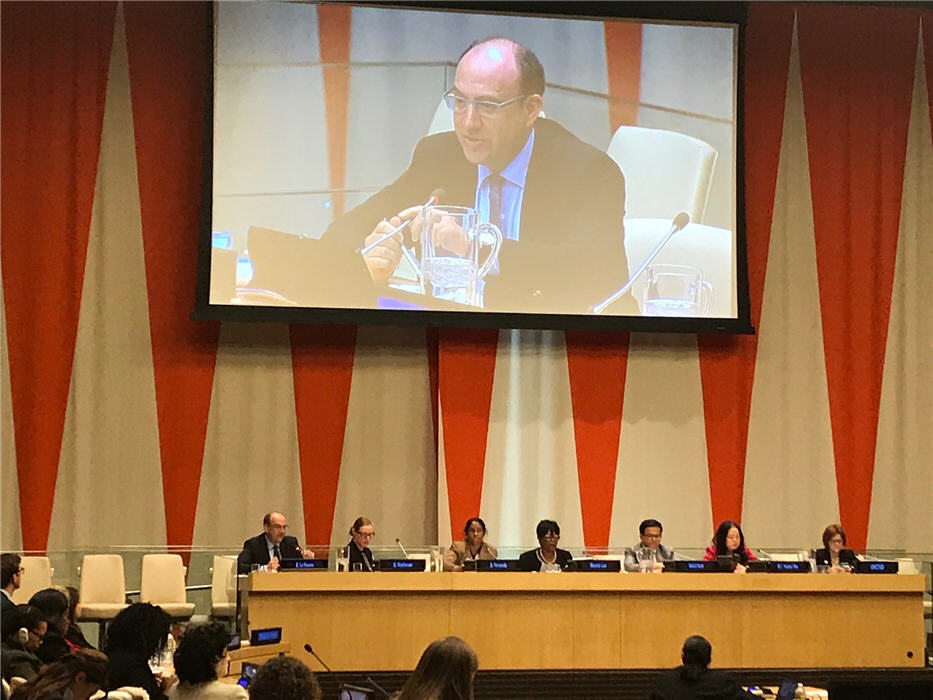WIPO Supports International Day of Women and Girls in Science
March 14, 2018
For the first time, WIPO co-sponsored a two-day forum marking the third International Day of Women and Girls in Science on the theme “Equality and Parity in Science for Peace and Development”. We talked to Bruno Le Feuvre, WIPO’s Statistical Analyst who participated in the high-level forum as a panelist, to find out more.
The Forum took place in February 2018 at the United Nations Headquarters in New York, in the auspicious Economic and Social Council Chamber. Some 200 participants took part in a varied interactive event involving panelists and speakers with diverse international profiles including ministers, diplomats, experts, scientists, journalists and students.
What exactly was your role as a panelist?
I presented WIPO’s key findings on women’s participation in international patenting. WIPO’s statistical research demonstrates that women’s participation has increased quite rapidly in each geographical region of the world over the past two decades. However, at the global level, currently not even one third of patent applications include women inventors. These findings reflected well the main message conveyed during the Forum. Governments, international organizations and non-governmental organizations have promoted more and more actively the participation of women and girls in science, technology, engineering, and mathematics (STEM) over the past years. And those of us taking part in the Forum agreed that many substantial challenges still remain to achieve the goal of gender equality in these fields by 2030.
What did you think of the Forum?
I could feel the energy and the passion of men, women, and girls engaged in creating a more sustainable world. This Forum was much more than a place to express the need for further policy actions; it reflected a global movement of those who believe that science should be widely open to everyone. We shared difficulties, injustices, committed willingness, and the successes that reflect today’s state of the world.
What were the concrete outcomes?
The most concrete result of this third Forum was certainly that over 20 countries formally signed an outcome document in which they commit to continue efforts to achieve the effective empowerment of women and girls in science, technology and innovation, including as users, content creators, employees, entrepreneurs, innovators and leaders.
Find out more
- Measuring women’s participation in intellectual property
- Videos from the Forum on YouTube
